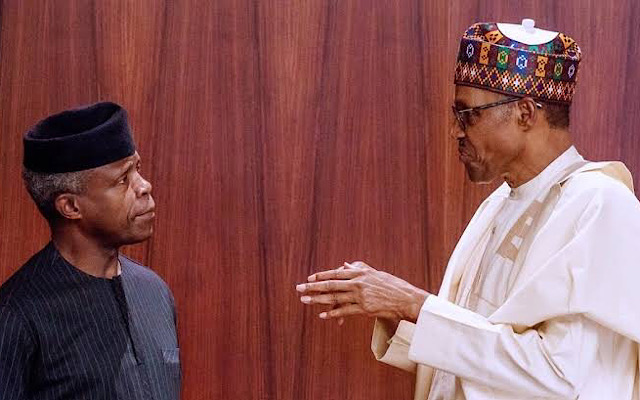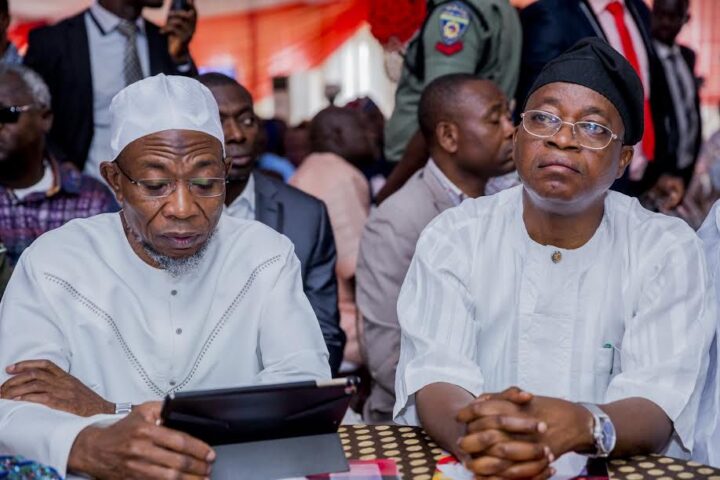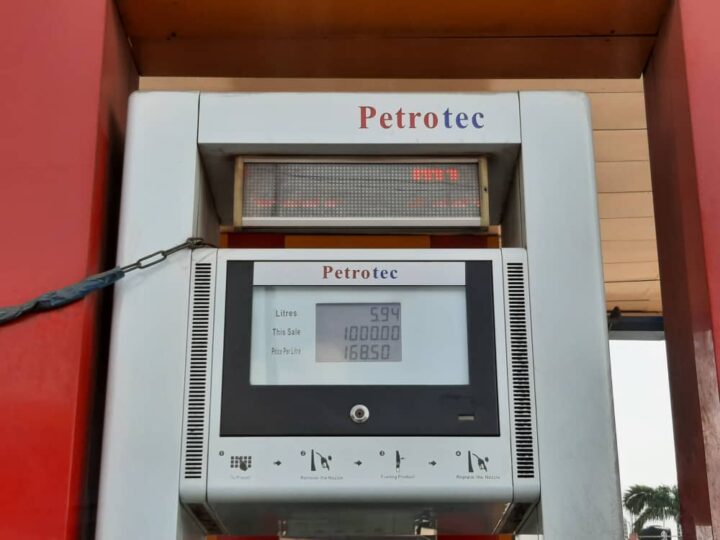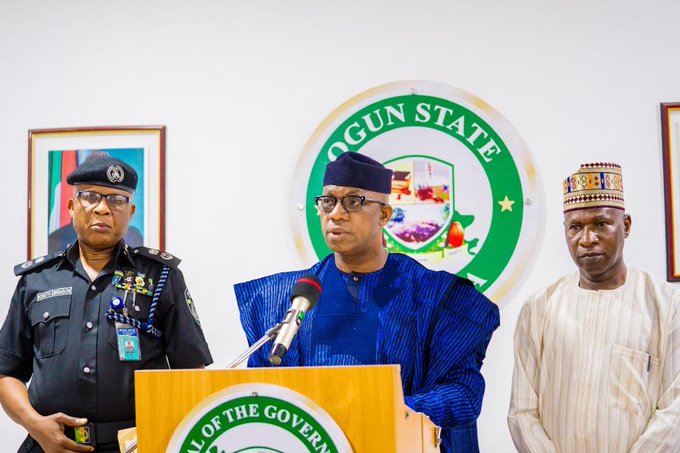Upfront, I will advise this administration to steer far clear of any so-called petroleum sector ‘deregulation’ come January 2022. Sentiments are tinder-dry and I doubt if they would want another #EndSARS-scale demonstrations on their hands, or worse. I mean, it takes a lot of nerve to meet the petrol price at N97, take it first to N145 naira and then N162 and then propose to leave it at N380 or more. The first increase was done without apologies or care, as the president was merely riding on his fabled and now demystified Mai-Gaskiya factor. Since the government came in 2015, what Nigerians have seen has been different. No matter what anyone says about that era, the majority of voters expressed hope in the Buhari-Osinbajo ticket, and part of that hope was that the economy would be fixed, while life will be easier for most Nigerians in terms of improved standards of living.
Alas, what Nigerians paid for has been totally different from what has been delivered. And so, through a lot of disdain, refusal to interact with the people, talk downs such as Nigerian youths being lazy or agreeing with David Cameron, then prime minister of United Kingdom that Nigerians were fantastically corrupt, the fuel price was increased, twice, to almost double what it was pre-2015. Before EndSARS, perhaps the worst nationwide riot in recent times was in January 2012, due to the tentative increase of fuel price from N65 to N140 per litre, in the name of deregulation. The then government backed down to N97. Nigerians would later find out that a few connected smart Alecs had swindled the country of N2.53 trillion in false subsidy claims. Some, like me, needed to know that that level of fraud did happen in this country. But not much has happened to those guys. They are still among us – rehabilitated big boys and girls.
On each occasion when petroleum price was increased, the Buhari government claimed to have deregulated. Even the Jonathan government claimed to have deregulated in 2012. It wasn’t until later (in 2018) that the issue of subsidy crept in, again. This time, it was christened ‘under-recovery’. Of course, in spite of claiming to have ‘deregulated’ the market, the national oil company, NNPC, remains the sole importer and as I type this, the corporation says it has spent an excess of at least N1.6 trillion as of November 2021 on under-recovery supplying just premium motor spirit (petrol) to Nigerians, compared to the amount it was able to get back from Nigerians. Why? The set price of N162 is way too low, they say. So, we are back to the deregulation debate.
The government has collapsed the Petroleum Equalization Fund (PEF) and the Petroleum Product Price Regulation Agency (PPPRA), into new regulatory entities, but in reality, we haven’t seen how that market would be fully and truly deregulated, or how the government hopes to manage the blowback of real deregulation – away from the usual deluded meetings they have in air-conditioned boardrooms. Is whatever is left of the PPPRA in the new entity still going to exercise any price control? Why did the government retain an agency that purports to control the price, yet pretend to the people that it had deregulated twice since 2015 and wants to ‘deregulate again’ in January 2022? Why should Nigerians trust this administration for anything at all? Is whatever is left of PEF in the new entity still interested in ‘equalising’ petrol prices all over the country ‘because we are one, indivisible nation’? Is that how deregulated markets work? Or has the government shown Nigerians that it is ready for a market where the price of petrol in Victoria Island is higher than in Okekoto Agege, maybe because posh people live and work in VI and can pay more, and the price in Argungu or Jimeta may be significantly higher than in Port Harcourt because of the cost of logistics? Are we ready to liberalise importation from Maradi and elsewhere, and allow people to sell at any price they want, or that balance their books and turn them a good profit? Are we ready to rein in the oligopolies that will likely skin Nigerians alive in that sector with price-fixing, price gouging, blackmails, fraud, and what have you? A key player once told me one-on-one, that there were no saints in their business.
Advertisement
I am not certain that we are ready, simply because primordial thinking about these issues is too ingrained in the minds of our leaders. I am not talking of Buhari alone. He has to convince state governors, traditional and religious leaders, and so-called stakeholders to make them see what real deregulation is about. The first step of that process has not even been taken at all. In fact, we hear that the El-Rufai committee set up to look at this issue, is proposing a price of N380 and it looks like that will be the landing point in January if this government is crazy enough to stick a fist in the mouth of Nigerians. The minister of finance, Zainab Ahmed, has proposed some palliatives – which turned out to be more expensive than the so-called subsidies. It made no sense and shows just how desperate the government is. The issue is not palliatives. We have been seeing palliatives since at least the time of Petroleum Trust Fund headed by no less than Buhari in the mid-1990s. For me, it is either the government deregulates or not. The palliatives are an avenue for massive fraud. But all considered, this government should please not go near this project. The government has since spent whatever goodwill it brought under one year of its advent. It should just ride out whatever time is left with Nigerians. Let it be another government’s liability to wrestle with the issue of deregulation of fuel price, as desirable as it may be.
Indeed, what we are subsidising is not the price of petroleum, but the fraud that permeates the entire ecosystem around fuel imports. A very tight confederacy exists around that sector and no matter what the government has done, no one has been able to beat those guys. The opacity in the sector also stems from the fact that the market is international. What should provide transparency (international markets) also harbors the very elements of the darkness that envelops that market. Which Nigerian will be able to interrogate the process of prospecting, exploration, production, storage, transportation, export, sale, import, and purchase of the products involved in that sector? Even successive presidents in Nigeria have learned to sit and wait for whatever that corporation gracefully hands over to them, whether they appoint themselves minister of petroleum, or not.
In spite of recent reforms, it will be awfully arduous to wrestle such ingrained and perennial power as those with power never wish to relinquish same. Therefore, beyond the several funny calculations that lead us into deficits running into trillions, what we suffer is the massive and mindless corruption in that sector, which could be confirmed in the sabotage of all our refineries. We could add to that, the failure of our education to teach us anything tangible, or perhaps more aptly, our refusal to use our vaunted education to solve problems that matter. That is why we haven’t built anything in 72 years of higher education in this country that can help us refine petroleum. The last time I checked, Nigeria imports at least $12 billion worth of refined petroleum products yearly while we are entitled to merely 35% of the $45 billion exported in crude oil yearly ($15 billion). What we import almost cancels out what we gain from exports. And this is before the huge administrative and operational expenses from our behemoth petroleum corporation and its many subsidiaries kick in. The fault is indeed in our stars.
Advertisement
The issues for the Buhari-Osinbajo government are not limited to the petroleum sector and the upcoming deregulation. I viewed every other sector and everywhere looks covered in crimson. If this government were a child, it would have been a very dull one – the type that gives its parents pangs of disappointment and apprehension for the future. The government would like to claim some successes around infrastructure building though. The Chinese have helped us somewhat with the rail sector, with some nice airports – some kudos to Rotimi Amaechi – and I understand Babatunde Fashola will be opening some roads in the next year. Yet, Nigeria could not be called an infrastructure-sufficient nation. It’s just that our standards have dropped, and the bar has been totally lowered. Most of our villages remain in the 17th century, where the earliest European adventurers met them. Our children are still out of school en masse as we waste their precious minds and I have seen some so-called enlightened leaders even justify that situation, choosing to blame it on colonialists. We thank God for our physiological composition and adaptation over time, otherwise, we should have been sicker than people in ‘developed’ economies. COVID-19 did not wreak the foretold and expected havoc no matter how our traducers tried.
But as fair as I tried to be, everything else looks woeful for this government and I wonder where the miracles will come from, that the Buhari-Osinbajo regime will not be declared – officially and on the streets – as the worst government this country has ever seen. Add to the attempt to leave fuel price at N380, with prospects to reach N500 or N600 once we have been left to the mercy of oligarchs, the fact that this government met the naira officially exchanging at N199 to the US dollar and has now devalued to at least 410, while on the streets, what exchange for N220 is now N570, and you begin to see the meaning of calamitous disaster. I have consistently called this government a Buhari-Osinbajo administration because I now see that indeed Osinbajo is serious about coming in as president in 2023. It will be a natural transition to someone who has been part of the government for eight years and within the same party. The idea will be not to upset the applecart at all. And indeed, Osinbajo is smart, savvy, hardworking, eloquent, fit, very intelligent. But he cannot extricate himself from the calamity on ground. More so, per the constitution, the economy is under the purview of the vice president, and he has had some good part to play in how the economy has turned out. The two major devaluations we first had since 2016 – from N199 to N306 and then to N360 – happened under his watch and with his approval. Buhari was then busy repeating how he was never going to devalue the currency when he had absolutely no plan on what to do. Osinbajo has also been repeating the idea that the naira should be floated. The naira could only float in one direction for as far as the eyes can see – down. Add his flair and a soft spot for arcane economics like cryptocurrencies and the blinding success of fintech and ‘investments’, and I’m afraid he may play a huge gamble if he comes in. I will write him another missive on this, seeking assurances. His economics is way too far on the right for the good of this country.
So, the naira has tanked under this government and may tank some more. A nightmare scenario begins to unfold. What are the other indices by which economic performance may be measured? Inflation. Yes, a growing economy will suffer inflation, but the Nigerian economy has not grown since 2015. It’s been tales of woe, first due to a downturn in crude prices in 2016, and then COVID-19 in 2020. The spikes in crude oil prices in between have been liabilities to us. The higher crude oil prices, the higher PMS prices, and subsidies, and then riots or worse. The lower the crude oil prices, the more we have to devalue the naira and take loans we do not intend to pay. More on debts shortly. I priced a bag of Olam Rice today (produced locally), and was told it was N26,500! Another one that looked imported (as it was written Thai something or other) was priced at N28,500! We were complaining about N8,000 rice under Goodluck Jonathan. We have seen at least a 250% increase in the price of staples under this government. I recently went into a corner shop and bought a fairly large tin of Milo for N10,000! That is 60% of the minimum wage! Cooking gas has climbed from N3,000 to N9,000. Cement is closing in on N5,000. Even the prices of garri and beans are way through the roof. And salaries have stagnated everywhere.
Even those of us who do business have been unable to keep jerking up prices and fees arbitrarily in this fashion. I sometimes feel like something is eroding the very ground upon which I stand, closing in on my poor self, even though I know that the best opportunities are here in Nigeria. Things could be so much better if this government did not turn out the way it has. I sometimes also feel like something happened to Buhari that fundamentally allowed his alter-ego to kick in, like someone who suffers from a dual personality crisis. Not long after he was sworn in in 2015, the man changed against the people. A man who walked among the people simply stopped and showed that he held the people in disdain, and was only happy among his fellow politicians with whom he backslapped. When asked about his promises to the people in the couple of interviews that he granted, he scowled, grimaced, glowered, and asked with dripping unconcern and disdain: “Did I cause the problem?” I was beyond crestfallen. I knew less than six months into that government that it will bear ugly fruits and decided that we should organise ourselves around new political parties.
Advertisement
Debt. Foreign and domestic. This is another frightening reality that deserves its own separate analysis. Well, if we were to admit, the Buhari-Osinbajo government has unfortunately combined bad luck with incompetence. The government will want us to believe that it has no choice but to borrow. Since the advent of COVID, yes. Every country – even the rich ones – is borrowing in order to claw their ways out of an unprecedented crisis that has led to an almost permanent shutdown of at least a fraction of every economy. But there are two issues. I recall that pre-COVID-19, Kemi Adeosun not only borrowed massively, she actively courted foreign loans, ignoring the obvious problem presented by exchange risks. We complained then too and I wrote a number of articles about it.
However, recently, we have consolidated on these foreign loans, which liabilities even became larger as we devalued the currency. The liability (in naira) will be even larger as we continue to devalue. I think that the reason why we borrow hovers around our innate laziness (which manifests in the mental block that we are helpless and must go begging), and the unwillingness of people in government to do the right thing. Most people who have ascended office at our national level seem to genuflect to their counterparts abroad, and display some level of inferiority which translates to this ‘begging billionaire’ syndrome. Also, our leaders cannot go after the principalities and powers to pay more taxes. No one is even ready to better organise society to earn more for government by way of fees, levies, duties, fines, charges, rents, and what have you. And so, all the proposals about increases in sin taxes, excise duties, luxury taxes, property taxes, capital gains taxes, inheritance taxes, and what have you, have come to naught. We chose, very much under this administration, to rather mortgage the future of our unborn generations, to come and be beggars in perpetuity to their mates abroad.
This is not to give a pass mark to former governments in Nigeria. I don’t do mediocrity. I also know how tough governance can be, but it must be said that this government fell under the weight of its own ignorant arrogance. Indeed, other governments had even tried to collaborate with others in forging some degree of unity through politics. Obasanjo coopted the Ume-Ezeokes, the Bola Iges, the Mahmuds. Yar’Adua coopted many from the opposition. Ditto Jonathan. But these ones came and thought they were superstars. The government will need a major miracle to heal the cancers it has caused in the Nigerian body polity. I haven’t even spoken about the total failures in security, in education, in the health sector, in the housing sector, in the environmental sector, and indeed anywhere that matters.
For now, my conclusion is that anyone that has been closely associated with this administration should not dare to step out for the 2023 election. It will be a mockery of the Nigerian people. 2015-2022 will be a period best written off for most Nigerians. How then do we ensure we don’t get it so wrong in 2023? Frightening indeed. But we will outlive this one also. In 2023, for the sake of the economy and our own very lives, we cannot afford to get it wrong.
Advertisement
Views expressed by contributors are strictly personal and not of TheCable.
Add a comment







